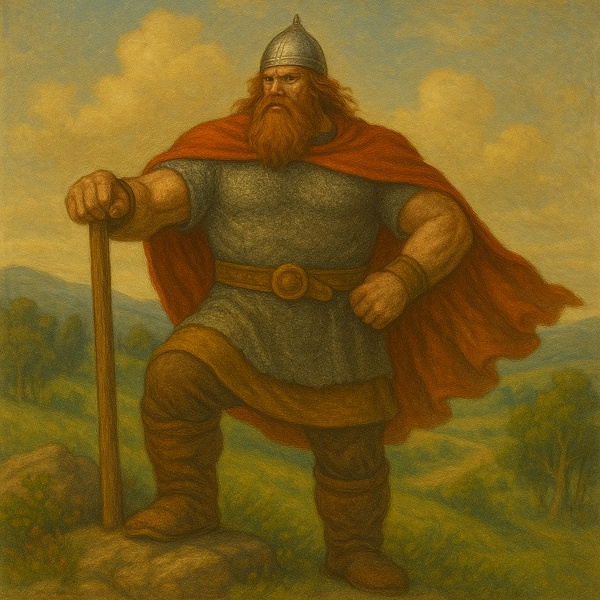
Svyatogor the Giant
Mighty Hero of Slavic Folklore
Story Details
- Type: Heroic Bylina
- Culture: Kievan Rus
- Similar to: Atlas in Greek mythology
- Main Figures: Svyatogor, Ilya Muromets
- Themes: Strength, Limits, Legacy
Key Elements
- Colossal mountain-dwelling giant
- Earth cannot support his weight
- Enchanted coffin trap
- Power transfer to Ilya Muromets
- Symbolic earth's weight bag
The Legend of Svyatogor
Svyatogor, the colossal giant of Slavic mythology, dwelled in the towering mountains. His superhuman strength was so immense that Mother Earth couldn't support his weight, confining him to the remote highlands.
In the most renowned Russian epic tale, Svyatogor encounters the legendary hero Ilya Muromets. Their strength contest ends with Svyatogor's victory, but fate intervenes when they discover an enchanted coffin. The coffin's magic entraps Svyatogor, forcing him to bequeath his mighty power to Ilya in his final moments.
Another profound Slavic folk tale recounts Svyatogor's attempt to lift a seemingly small bag containing "all the earth's weight." This symbolic story demonstrates that even the strongest beings must respect natural limits, as Svyatogor sinks into the ground, humbled by the planet's power.
Svyatogor in Slavic Culture & History
Svyatogor embodies the ancient Slavic worldview of nature's raw power. Scholars believe these epic tales originated from pre-Christian myths about:
- Mountain spirits and deities
- Primordial giants in Slavic cosmology
- Heroic archetypes in early Russian folklore
These Slavic legends convey timeless wisdom about:
- The boundaries of physical might
- The value of wisdom over brute strength
- The cyclical nature of heroism
Some scholars connect Svyatogor to the Scythian and Sarmatian warrior cultures that influenced early Slavs. His name means "Sacred Mountain", linking him to sacred high places in Slavic paganism.